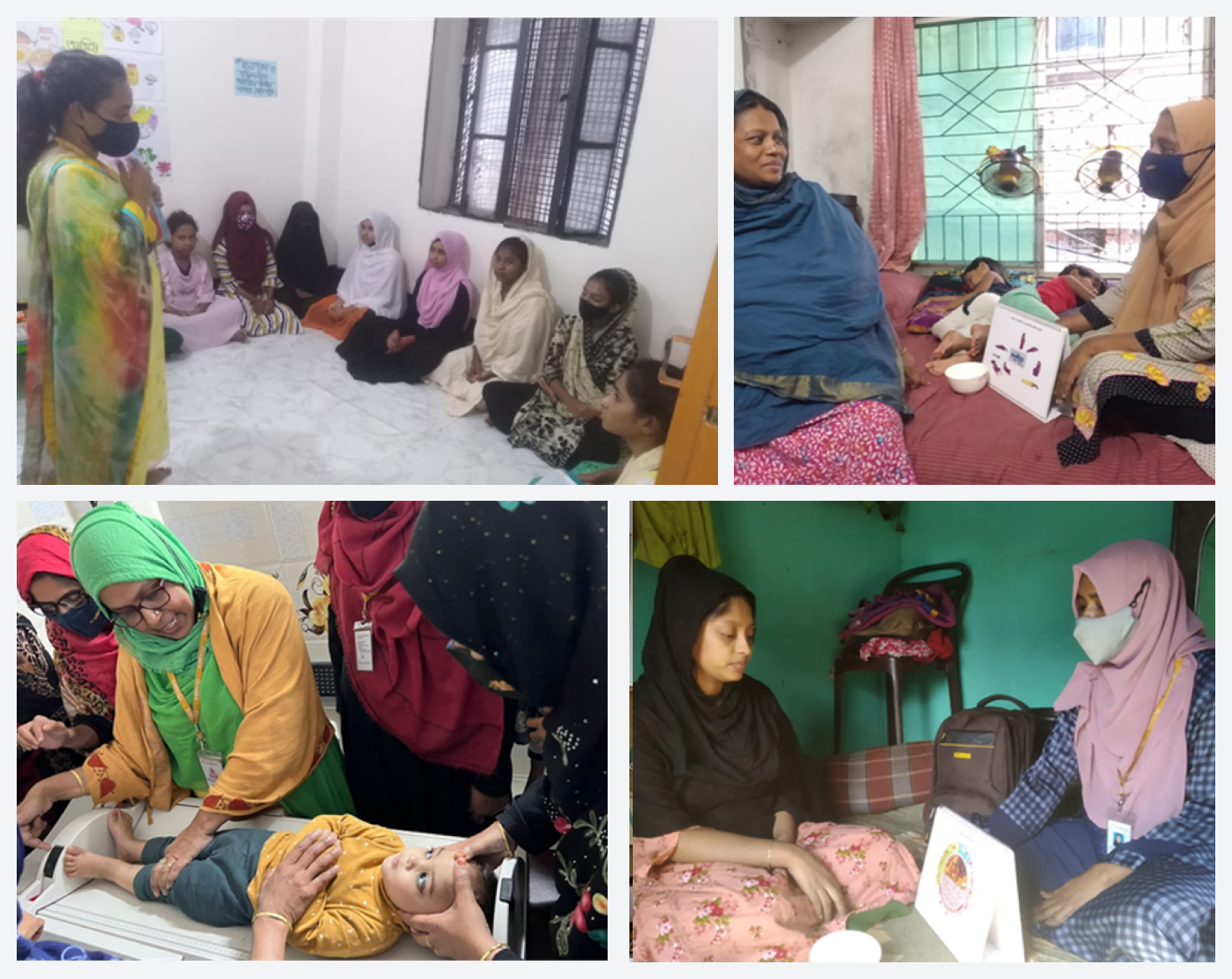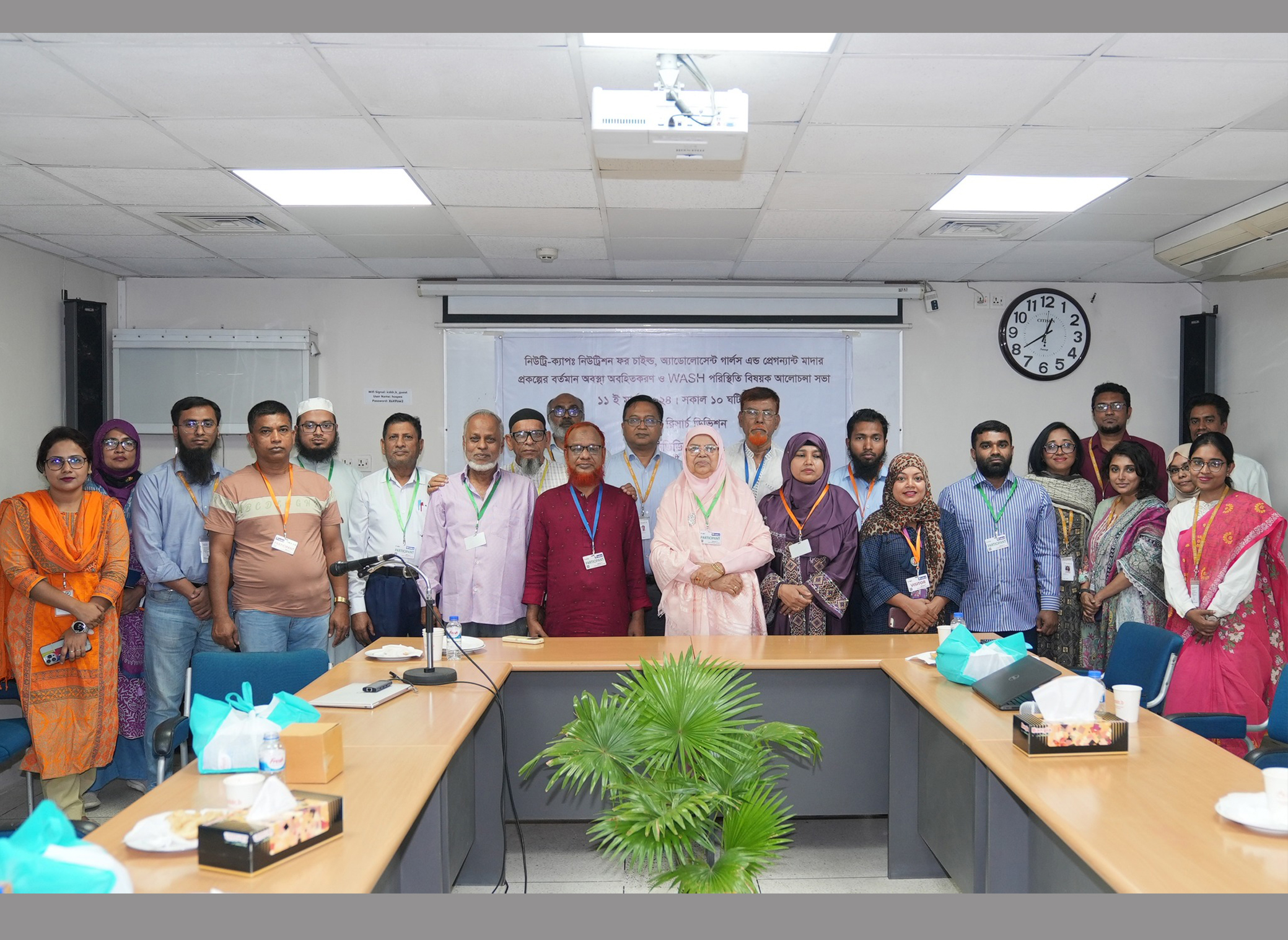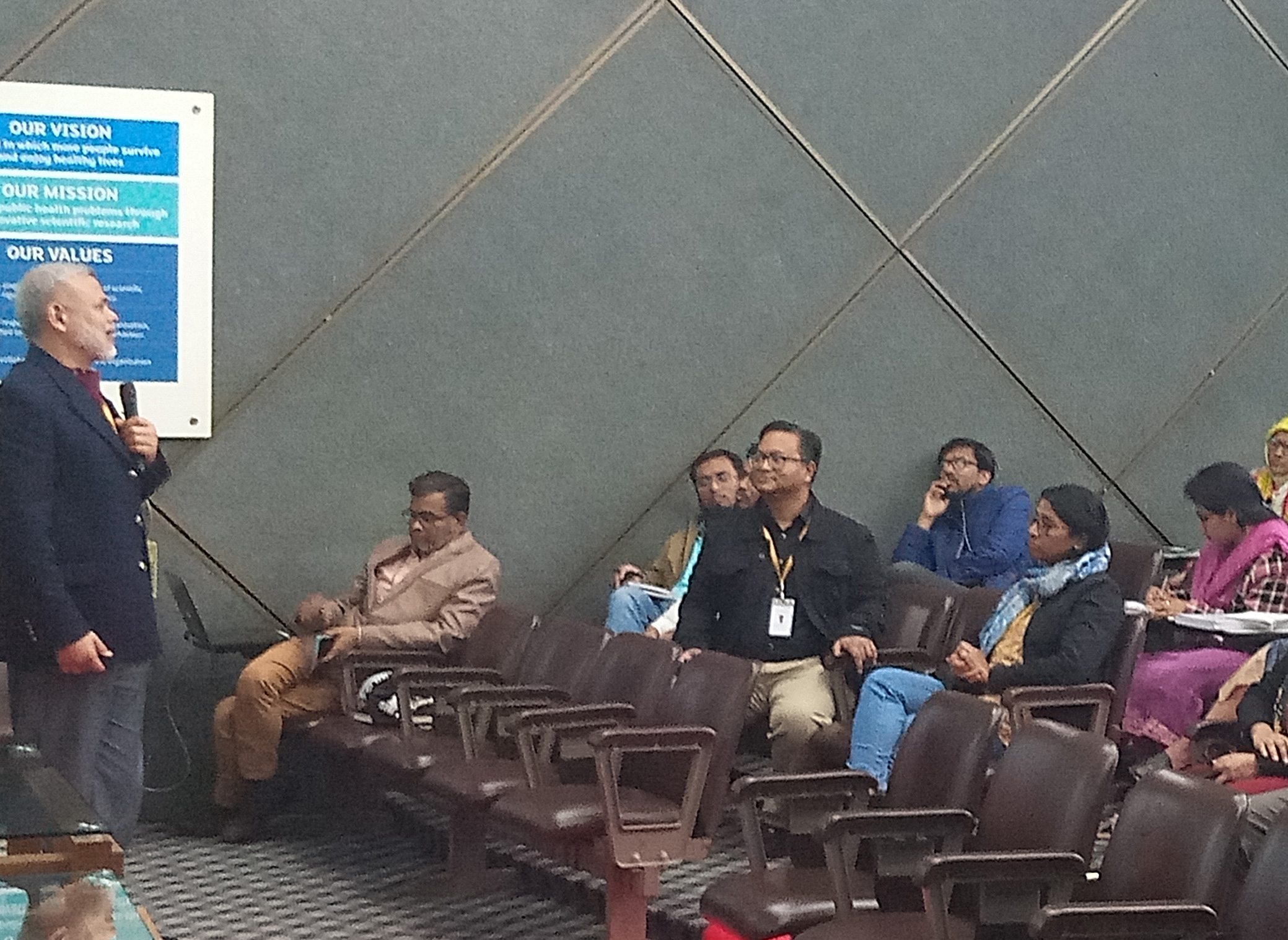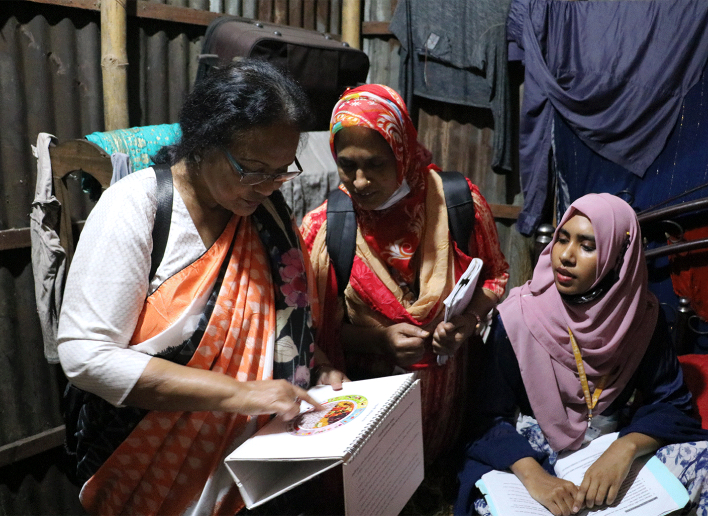Nutri-CAP: Nutrition for Children, Adolescent girls, and Pregnant women in slums of Dhaka city

Study Overview
The emergence of COVID-19 poses substantial public health risk to the world. Our research done
at the peak of the lockdown in Dhaka city showed that 90% of more than 200 households surveyed in a
slum in Dhaka city and in villages of Matlab in rural Bangladesh suffered from food insecurity, the
situation was worse in the slum areas. Our previous work demonstrated that 50% of under-five children in slums have stunted growth, half of all children suffer from deficiency of zinc. Our recently completed
study revealed that third-trimester weight gain was poor in general among rural women in Matlab,
Bangladesh, and 54% of the women failed to gain adequate weight (>4 kg) in the third trimester.
Although the burden of undernutrition as well as adverse consequences of nutritional
impairment is prominent in Bangladesh, there is no platform to implement sustainable nutrition delivery
services in slums, particularly for children, adolescent girls and mothers with pregnancy. In addition,
there lacks data on status of pregnancy weight gain, dietary diversity both in pregnant women and
adolescent girls in slums. Evidence on role of Infant and Young Child Feeding (IYCF), growth
monitoring and promotion, micronutrient supplementation and counselling on Water, Sanitation and
Hygiene (WASH) in improving childhood growth and ameliorating Enverionmental Enteric Dysfunction
(EED) is also limited.
Such lack of knowledge limiting the success of nutritional programs being done in slums.
Moreover, it is causing obstacles in reducing the nutritional burden among three vulnerable groups of
population.
Thus we are conducting a quasi-experimental study in the Bauniabadh and the adjacent slum areas of Dhaka city. We have established an intervention model for developing and implementing sustainable nutrition service delivery platforms for the urban poor in Dhaka. This study includes community survey, formative study, community-based nutrition intervention. Our intervention tailored with a combination of nutrition-specific interventions, water, sanitation, and hygiene measures, and in-kind transfers of nutritious food.
Study Sites
Dhaka







